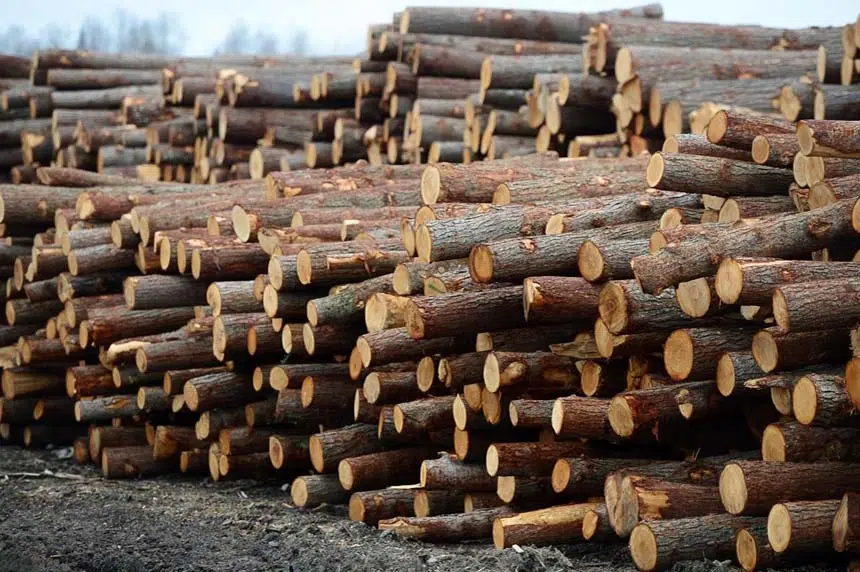Canada’s softwood lumber industry suffered another blow after the U.S. International Trade Commission unanimously voted Thursday that its imports have harmed the American lumber industry.
In a 4-0 vote, the agency sided with the U.S. lumber coalition.
The U.S. Commerce Department last month lowered preliminary duties. Most Canadian producers will pay a combined countervailing and anti-dumping rate of 20.83 per cent, down from 26.75 per cent in the preliminary determinations issued earlier this year.
The duties have driven up the price of lumber, adding to the cost of building a home in the United States. Canadian unions and lumber companies fear the issue will eventually cause layoffs.
West Fraser Timber (TSX:WFT) pays the highest duties at 23.7 per cent. Canfor (TSX:CFP) is next at 22.13, followed by Tolko at 22.07, Resolute Forest Products (TSX:RFP) at 17.9 per cent and J.D. Irving at 9.92 per cent.
The vote means $500 million in deposits for the duties paid by Canadian producers thus far won’t be returned as the industry had hoped.
A Resolute Forest Products spokesman said the U.S. will now hold large industry deposits as “ransom” in hope of pushing the Canadian government to sign a “bad deal.”
“Sorry U.S., that’s not going to happen. Canada is not going to be bullied into submission,” Seth Kursman said in an interview from Washington, D.C.
He added that softwood lumber from Canada is a clear case that no injury was suffered.
“The U.S. industry has been crowing about its prosperity for over a year. It is making more money than at any previous time in history.”
Canadian share of the U.S. market is below 34 per cent.
The U.S. Lumber Coalition, which launched a petition nearly a year ago, applauded the vote.
“The evidence presented to the ITC was clear — the massive subsidies that the Canadian government provides to its lumber industry and the dumping of lumber products into the U.S. market by Canadian companies cause real harm to U.S. producers and workers,” stated co-chairman Jason Brochu.
“Now, with a level playing field, the U.S. lumber industry, and the 350,000 hardworking men and women who support it, can have the chance to compete fairly.”
Fellow co-chairman Joe Patton added U.S. lumber mills will be able to make investments to expand production to meet demand.
Reasons supporting the vote are expected to be released in two weeks.
Canada is challenging the duties under both the North American Free Trade Agreement and at the World Trade Organization. The NAFTA dispute panel has to make a ruling by next fall. The WTO process could take years.
In its final arguments to the commission, the Canadian government and the lumber industry said there is no evidence the U.S. industry has suffered harm since it is in the midst of the most profitable period for on record.
“Any industry can insist that it should have been more profitable than it was,” said the filing. “But the commission should look skeptically upon a claim that a wildly successful industry is suffering or threatened with material injury by reason of subject imports.”
Ross Marowits, The Canadian Press







